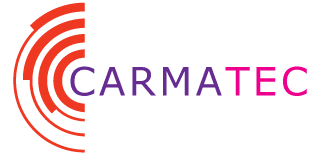.NET has long been a powerful and versatile ecosystem for building a wide variety of applications. From desktop software to mobile apps and web services, .NET provides developers with the flexibility and functionality needed to bring their ideas to life. As we venture further into 2025, let’s dive into the top 10 .NET development tools and libraries that are essential for developers.
Table of Contents
Top 10 .NET Development Tools and Libraries for Developers
1. Visual Studio:
Visual Studio reigns supreme as the go-to integrated development environment (IDE) for .NET developers. Its rich feature set, robust debugging tools, and seamless integration with the .NET framework make it an indispensable part of any developer’s toolkit.
Features:
- Comprehensive code editor with IntelliSense.
- Powerful debugging and diagnostics tools.
- Supports a multitude of programming languages and frameworks.
Applications:
- Ideal for building any .NET application, be it web, desktop, mobile, or gaming.
- Provides a centralized development environment for individual developers and teams.
2. Visual Studio Code:
Visual Studio Code is a lightweight but powerful source code editor that runs on your desktop. It’s available for Windows, macOS, and Linux, and it comes with built-in support for JavaScript, TypeScript, and Node.js, with a rich ecosystem for other languages like C#, Python, and PHP.
Features:
- IntelliSense for smart completions based on variable types, function definitions, and imported modules.
- Debugging capabilities that let you break, call stack, and an interactive console.
- Built-in Git commands for easy version control.
Applications:
- Coding, debugging, and running applications across various programming languages.
- Quick edits, remote development, and version control for individual devs or teams.
3. .NET Core:
.NET Core is an open-source, general-purpose development platform maintained by Microsoft and the .NET community on GitHub. It’s cross-platform, supporting Windows, macOS, and Linux, and can be used to build device, cloud, and IoT applications.
Features:
- High performance and scalability for web and cloud applications.
- Command-line tools and compatibility with many editors.
- Extensive API set for building versatile applications.
Applications:
- Building web services, server applications, and high-performance backend systems.
- Developing lightweight and containerizable applications suitable for cloud deployments.
4. Entity Framework Core:
Entity Framework (EF) Core is a modern object-database mapper for .NET that supports LINQ queries, change tracking, updates, and schema migrations.
Features:
- Reduces the amount of code needed for data access.
- Supports a wide variety of database systems.
- Enables database schema migrations and seeding.
Applications:
- Ideal for managing database entities and relationships in .NET applications.
- Suits both small-scale and enterprise-level applications requiring robust data access.
5. Xamarin:
Xamarin is a .NET app platform with tools and libraries for building apps for Android, iOS, tvOS, watchOS, macOS, and Windows.
Features:
- Share code across platforms with .NET Standard.
- Native performance and access to platform-specific APIs.
- Rich ecosystem of NuGet packages and .NET libraries.
Applications:
- Developing cross-platform mobile and desktop applications with a single codebase.
- Applications that require native performance and user experience.
6. ASP.NET Core:
ASP.NET Core is a free, cross-platform, open-source framework for building modern, cloud-based, internet-connected applications.
Features:
- High performance and lightweight.
- Built-in dependency injection.
- Supports side-by-side versioning.
Applications:
- Building dynamic websites, web services, and web applications.
- Suitable for cloud-based and enterprise applications.
7. Blazor:
Blazor is a feature of ASP.NET for building interactive web UIs using C# instead of using JavaScript.
Features:
- Utilize .NET for both server-side and client-side application logic sharing.
- Create HTML and CSS-based UI for broad browser compatibility, including mobile devices.
- Integration with modern JavaScript frameworks.
Applications:
- Building interactive web applications with .NET and C#.
- Suitable for developers looking to work within the .NET ecosystem without reliance on JavaScript.
8. NuGet:
NuGet is the package manager for .NET, which provides the central repository for .NET packages.
Features:
- Easy to find and add libraries to .NET projects.
- Version control for safer and reliable dependency management.
- Supports private hosting for enterprise use.
Applications:
- Ideal for managing packages and dependencies in .NET applications.
- Streamlines the process of integrating third-party libraries.
9. ML.NET:
ML.NET is a free, open-source, cross-platform machine learning framework for .NET developers.
Features:
- Utilize C# or F# to incorporate machine learning into .NET applications.
- Provides tools for model training, evaluation, and deployment.
- Supports TensorFlow, ONNX, and AutoML.
Applications:
- Building and integrating machine learning models for predictions, analytics, and feature engineering.
- Suitable for .NET developers venturing into AI and machine learning.
10. NUnit:
NUnit is a unit-testing framework for all .NET languages, widely used for its simplicity and flexibility.
Features:
- Parameterized, generic, and theory tests.
- Rich set of assertions for writing tests.
- Supports parallel test execution.
Applications:
- Writing and executing unit tests for .NET applications.
- Ideal for practicing test-driven development (TDD) and ensuring code quality.
Conclusion
Each of these tools and libraries brings something unique to the table, whether it’s streamlining development processes, ensuring code quality, or empowering applications with modern capabilities. By leveraging these .NET tools and libraries, developers are well-equipped to tackle a diverse array of programming challenges and push the boundaries of what’s possible in software development. Ready to boost your web and software projects? Hire .NET developers from Carmatec and make your vision come to life.
Frequently Asked Questions
The top .NET development tools for 2025 include Visual Studio, Visual Studio Code, and .NET Core. These tools offer robust features for coding, debugging, and building applications across various platforms. They provide the necessary infrastructure for efficient and scalable .NET development, catering to the needs of modern developers.
Essential .NET libraries for application development include Entity Framework Core for database operations, ASP.NET Core for building web applications, and Xamarin for creating cross-platform mobile apps. These libraries streamline the development process and offer a range of features to build versatile and high-performance applications.
Blazor improves web development in .NET by enabling developers to build interactive web UIs using C# instead of JavaScript. This allows for sharing app logic between server and client sides and provides better integration with the .NET ecosystem. Blazor is a game-changer for developers who prefer working with C# and .NET tools.
NuGet is crucial for .NET developers as it serves as the central repository for .NET packages, streamlining the process of integrating third-party libraries into projects. It offers version control for dependencies, ensuring safer and more reliable package management. NuGet’s ease of use and support for private hosting make it a staple in the .NET development workflow.
NUnit is a preferred choice for testing in .NET due to its simplicity, flexibility, and rich set of assertions for writing tests. It supports parameterized, generic, and theory tests and enables parallel test execution. NUnit facilitates test-driven development (TDD) practices and is instrumental in maintaining high code quality across .NET applications.













